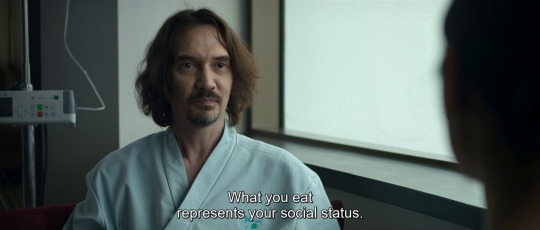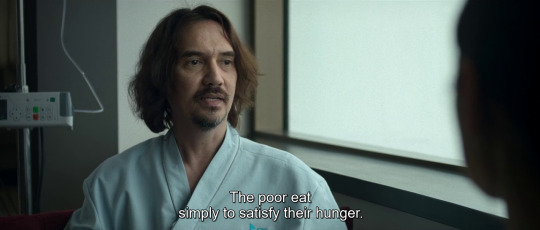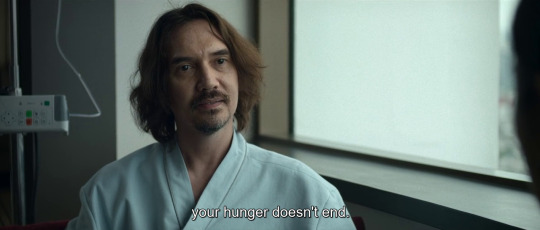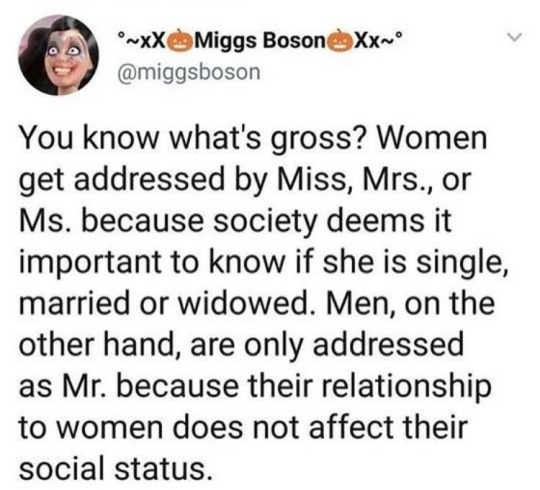#social status
Text



8 notes
·
View notes
Text
By: Rob Henderson
Published: Nov 19, 2023
Many have discovered an argument hack. They don’t need to argue that something is false. They just need to show that it’s associated with low status. The converse is also true: You don’t need to argue that something is true. You just need to show that it’s associated with high status. And when low status people express the truth, it sometimes becomes high status to lie.
In the 1980s, the psychologists Richard E. Petty and John T. Cacioppo developed the “Elaboration Likelihood Model” to describe how persuasion works. “Elaboration” here means the extent to which a person carefully thinks about the information. When people’s motivation and ability to engage in careful thinking is present, the “elaboration likelihood” is high. This means people are likely to pay attention to the relevant information and draw conclusions based on the merits of the arguments or the message. When elaboration likelihood is high, a person is willing to expend their cognitive resources to update their views.
Two paths to persuasion
The idea is that there are two paths, or two “routes,” to persuading others. The first type, termed the “central” route, comes from careful and thoughtful consideration of the messages we hear. When the central route is engaged, we actively evaluate the information presented, and try to discern whether or not it’s true.
When the “peripheral” route is engaged, we pay more attention to cues apart from the actual information or content or the message. For example, we might evaluate someone’s argument based on how attractive they are or where they were educated, without considering the actual merits of their message.
When we accept a message through the peripheral route, we tend to be more passive than when we accept a message through the central route. Unfortunately, the peripheral route is more prevalent because we are exposed to an increasingly large amount of information.
The renowned psychologists Susan Fiske and Shelley Taylor have characterized humans as “cognitive misers.” They write, “People are limited in their capacity to process information, so they take shortcuts whenever they can.”
We are lazy creatures who try to expend as little mental energy as possible.
And people are typically less motivated to scrutinize a message if the source is considered to be an expert. We interpret the message through the peripheral route.
This is one reason why media outlets often appoint experts who mirror their political values. These experts lend credibility to the views the outlet espouses. Interestingly, though, expertise appears to influence persuasion only if the individual is identified as an expert before they communicate their message. Research has found that when a person is told the source is an expert after listening to the message, this new information does not increase the person’s likelihood of believing the message.
It works the other way, too. If a person is told that a source is not an expert before the message, the person tends to be more skeptical of the message. If told the source is not an expert after the message, this has no effect on a person’s likelihood of believing the message.
This suggests that knowing a source is an expert reduces our motivation to engage in central processing. We let our guards down.
As motivation and/or ability to process arguments is decreased, peripheral cues become more important for persuasion. Which might not bode well.
However, when we update our beliefs by weighing the actual merits of an argument (central route), our updated beliefs tend to endure and are more robust against counterpersuasion, compared to when we update our beliefs through peripheral processing. If we come to believe something through careful and thoughtful consideration, that belief is more resilient to change.
This means we can be more easily manipulated through the peripheral route. If we are convinced of something via the peripheral route, a manipulator will be more successful at using the peripheral route once again to alter our initial belief.
Social consequences of our beliefs
But why does this matter? Because by understanding how and why we come to hold our beliefs, we can better understand ourselves and guard against manipulation.
The founders of the elaboration likelihood model wrote that, “Ultimately, we suspect that attitudes are seen as correct or proper to the extent that they are viewed as beneficial for the physical or psychological well-being of the person.”
In his book The Social Leap, the evolutionary psychologist William von Hippel writes, “a substantial reason we evolved such large brains is to navigate our social world… A great deal of the value that exists in the social world is created by consensus rather than discovered in an objective sense… our cognitive machinery evolved to be only partially constrained by objective reality.” Our social brains process information not only by examining the facts, but also considering the social consequences of what happens to our reputations if we believe something.
Indeed, in his influential theory of social comparison processes, the eminent psychologist Leon Festinger suggested that people evaluate the “correctness” of their opinions by comparing them to the opinions of others. When we see others hold the same beliefs as us, our own confidence in those beliefs increases. Which is one reason why people are more likely to proselytize beliefs that cannot be verified through empirical means.
In short, people have a mechanism in their minds. It stops them from saying something that could lower their status, even if it’s true. And it propels them to say something that could increase their status, even if it’s false. Sometimes, local norms can push against this tendency. Certain communities (e.g., scientists) can obtain status among their peers for expressing truths. But if the norm is relaxed, people might default to seeking status over truth if status confers the greater reward.
Furthermore, knowing that we could lose status if we don’t believe in something causes us to be more likely to believe in it to guard against that loss. Considerations of what happens to our own reputation guides our beliefs, leading us to adopt a popular view to preserve or enhance our social positions. We implicitly ask ourselves, “What are the social consequences of holding (or not holding) this belief?”
But our reputation isn’t the only thing that matters when considering what to believe. Equally important is the reputation of others. Returning to the peripheral route of persuasion, we decide whether to believe something not only if lots of people believe it, but also if the proponent of the belief is a prestigious person. If lots of people believe something, our likelihood of believing it increases. And if a high-status person believes something, we are more prone to believing it, too.
Prestigious role models
This starts when we are children. In her recent book Cognitive Gadgets, the Oxford psychologist Cecilia Hayes writes, “children show prestige bias; they are more likely to copy a model that adults regard as being higher social status- for example, their head-teacher rather than an equally familiar person of the same age and gender.” Hayes cites a 2013 study by Nicola McGuigan who found that five-year-old children are “selective copiers.” Results showed that kids were more likely to imitate their head-teacher rather than an equally familiar person of the same age and gender. Young children are more likely to imitate a person that adults regard as being higher status.
People in general favor mimicking prestigious people compared to ordinary people. This is why elites have an outsized effect on culture, and why it is important to scrutinize their ideas and opinions. As a descriptive observation, the opinions of my friend who works at McDonald’s have less effect on society than the opinions of my friend who works at McKinsey. If you have any kind of prominence, you unavoidably become a model that others, including children, are more likely to emulate.
Indeed, the Canadian anthropologist Jerome Barkow posits that people across the world view media figures as more prestigious than respected members of their local communities. People on screen appear to be attractive, wealthy, popular, and powerful. Barkow writes, “All over the world, children are learning not from members of their own community but from media figures whom they perceive as prestigious… local prestige is debased.” As this phenomenon continues to grow, the opinions and actions of the globally-prestigious carry even more influence.
Of course, people don’t copy others with high-status solely because they hope that mimicking them will boost their own status. We tend to believe that prestigious people are more competent; prominence is a heuristic for skill.
In a recent paper about prestige-based social learning, researchers Ángel V. Jiménez and Alex Mesoudi wrote that assessing competence directly “may be noisy and costly. Instead, social learners can use short-cuts either by making inferences from the appearance, personality, material possessions, etc. of the models.”
For instance, a military friend of mine used to be a tutor for rich high school students. He himself is not as wealthy as them, and disclosed to me that he paid $200 to replace his old earphones for AirPods. This was so that the kids and their families would believe he is in the same social position as them, and therefore qualified to teach.
Prestige paradox
Which brings us to a question: Who is most susceptible to manipulation via peripheral persuasion? It might seem intuitive to believe that people with less education are more manipulable. But research suggests this may not be true.
High-status people are more preoccupied with how others view them. Which means that educated and/or affluent people may be especially prone to peripheral, as opposed to central, methods of persuasion.
Indeed, the psychology professor Keith Stanovich, discussing his research on “myside bias,” has written, “if you are a person of high intelligence… you will be less likely than the average person to realize you have derived your beliefs from the social groups you belong to and because they fit with your temperament and your innate psychological propensities.”
Students and graduates of top universities are more prone to myside bias. They are more likely to “evaluate evidence, generate evidence, and test hypotheses in a manner biased toward their own prior beliefs, opinions, and attitudes.”
This is not unique to our own time. William Shirer, the American journalist and author of The Rise and Fall of the Third Reich, described his experiences as a war correspondent in Nazi Germany. Shirer wrote, “Often in a German home or office or sometimes in a casual conversation with a stranger in a restaurant, beer hall, or café, I would meet with outlandish assertions from seemingly educated and intelligent persons. It was obvious they were parroting nonsense they heard on the radio or read in the newspapers. Sometimes one was tempted to say as much, but one was met with such incredulity, as if one had blasphemed the Almighty.”
Likewise, in a fascinating study on the collapse of the Soviet Union, researchers have found that university-educated people were two to three times more likely than high school graduates to say they supported the Communist Party. White-collar professional workers were likewise two to three times more supportive of communist ideology, relative to farm laborers and semi-skilled workers.
Educational divides within the US today are consistent with these historical patterns. The Democratic political analyst David Shor has observed that, “Highly educated people tend to have more ideologically coherent and extreme views than working-class ones. We see this in issue polling and ideological self-identification. College-educated voters are way less likely to identify as moderate.”
One possibility for this is that regardless of time or place, affluent members of society are more likely to say the right things to either preserve status or gain more of it. A series of studies by researchers at the University of Queensland found that, “relative to lower-class individuals, upper-class individuals have a greater desire for wealth and status… it is those who have more to start with (i.e., upper-class individuals) who also strive to acquire more wealth and status.”
A more recent set of studies led by Cameron Anderson at the University of Berkeley found that social class, measured in terms of education and income, was positively associated with the desire for social status. People who had more education and money were more likely to agree with statements like “I enjoy having influence over other people’s decision making” and “It would please me to have a position of prestige and social standing.”
Social status loss aversion
Who feels most in danger of losing their reputations, though? Turns out, those same exact people. A survey by the Cato Institute in collaboration with YouGov asked a nationally representative sample of 2,000 Americans various questions about self-censorship.
They found that highly educated people are the most concerned about losing their jobs or missing out on job opportunities because of their political views. Twenty-five percent of those with a high school education or less are afraid of getting fired or hurting their employment prospects because of their political views, compared with 34 percent of college graduates and an astounding 44 percent of people with a postgraduate degree.
Results from a recent paper titled ‘Keeping Your Mouth Shut: Spiraling Self-Censorship in the United States’ by the political scientists James L. Gibson and Joseph L. Sutherland is consistent with the findings from Cato/Yougov. They find that self-censorship has skyrocketed. In the 1950s, at the height of McCarthyism, 13.4 percent of Americans reported that “felt less free to speak their mind than they used to.” In 1987, the figure had reached 20 percent. By 2019, 40 percent of Americans reported that they did not feel free to speak their minds. This isn’t a partisan issue, either. Gibson and Sutherland report that, “The percentage of Democrats who are worried about speaking their mind is just about identical to the percentage of Republicans who self-censor: 39 and 40 percent, respectively.”
The increase is especially pronounced among the educated class. The researchers report, “It is also noteworthy and perhaps unexpected that those who engage in self-censorship are not those with limited political resources… self-censorship is most common among those with the highest levels of education… This finding suggests a social learning process, with those with more education being more cognizant of social norms that discourage the expression of one’s views.”
Highly-educated people appear to be the most likely to express things they don’t necessarily believe for fear of losing their jobs or their reputation. Within the upper class, the true believers set the pace, and those who are loss-averse about their social positions go along with it.
Interestingly, there is suggestive evidence indicating that education is negatively associated with one’s sense of power. That is, the more education someone has, the more likely they are to agree with statements like, “Even if I voice them, my views have little sway” and “My ideas and opinions are often ignored.” Granted, the correlation is quite small (r = -.15). Still, the finding is significant and in the opposite direction of what most people would expect.
Research by Caitlin Drummond and Baruch Fischhoff at Carnegie Mellon University found that people with more education, science education, and science literacy are more polarized in their views about scientific issues depending on their political identity. For example, the people who are most concerned about climate change? College-educated Democrats. The people who are least concerned? College-educated Republicans. In contrast, less educated Democrats and Republicans are not so different from one another in their views about climate change.
Likewise, in an article titled “Academic and Political Elitism,” the sociologist Musa Al-Gharbi has summarized related research, writing, “compared to the general public, cognitively sophisticated voters are much more likely to form their positions on issues based on partisan cues of what they are ‘supposed’ to think in virtue of their identity as Democrats, Republicans, etc.”
High education and low opinions
It’s also useful to understand how highly educated people view others and their social relationships. Consider a paper titled ‘Seeing the Best or Worst in Others: A Measure of Generalized Other-Perceptions’ led by Richard Rau at the University of Münster. Rau and his colleagues were interested in how various factors influence people’s perceptions of others.
In the study, participants looked at social network profiles of people they did not know. They also viewed short video sequences of unfamiliar people describing a neutral personal experience like traveling to work. Researchers then asked participants to evaluate the people in the social media profiles and videos. Participants were asked how much they agreed with statements like “I like this person,” and “This person is cold-hearted.” Then participants responded to various demographic and personality questions about themselves.
Some findings weren’t so surprising. The researchers found, for example, that people who scored highly on the personality traits of openness and agreeableness tended to hold more favorable views of others.
More sobering, though, is that higher education was consistently related to less positive views of other people. In their paper they write, “to understand people’s feelings, behaviors, and social relationships, it is of key importance to know which general view they hold about others… the better people are educated, the less positive their other-perceptions are.”
So affluent people care the most about status, believe they have little power, are afraid of losing their jobs and reputation, and have less favorable views of others.
In short, opinions can confer status regardless of their truth value. And the individuals most likely to express certain opinions in order to preserve or enhance their status are also those who are already on the upper rungs of the social ladder.
There may be unpleasant consequences for this misguided use of intellect and time on the part of highly educated and affluent people. If the most fortunate members of society spend more time speaking in hushed tones, or live in fear of expressing themselves, or are more involved in culture wars, that is less time they could spend using their mental and economic resources to solve serious problems.
Smart people are usually better at finding the truth. But they’re also better at knowing which way the ideological winds are blowing, and thereby producing and accepting absurdities.
==
Explains why so many well-off college students with AirPods, a standard order at Starbucks and an Amazon account pretend to want communism, yet can't survive 5 minutes without Wi-Fi or TikTok.
#Rob Henderson#luxury beliefs#social status#social consequences#human psychology#loss aversion#religion is a mental illness
12 notes
·
View notes
Note
I'm not understanding the queen finding out that Claudia being romantically involved with Undertaker AKA Cedric K. Ross was a bad thing. Were they not in the same society class?
Undertaker's social status
They were not in the same class at all, since Undertaker is a reaper and therefore completely outside the Victorian class system. If he tried to fake being in the upper class, let alone a noble, he would have to dress as he does for the Weston arc.
You'd think that undertakers would be respected in Victorian society, considering how much people typically paid for their services, but they were not. Quite the opposite. Undertakers were considered one of the lowest positions, simply because they were dealing with dead bodies, which was considered somewhat dignified but extremely gross and dangerous. Many resented undertakers because of the high costs of funeral services, but that wasn't really the undertakers' fault. People had come to expect lavish services because it was fashionable... and that is a demand for expensive goods and services, not price gouging.
If you want to point a finger at the person who made lavish funerals so darn fashionable? Point at Queen Victoria. She set the goal, other affluent people made it trend, and the lower classes tried their best to achieve similar results.
Anyway, Undertaker wasn't truly in the same class as the Phantomhives, even if he put on a nice suit and fashionable hat and fancy tie.
But that's not the main reason why the queen wouldn't approve of them being together. John Brown (if no one else) would have informed her that Undertaker is a grim reaper, and the queen wouldn't have approved of that. If you ever watched s2 of the anime, notice that Claude convinces Alois that Sebastian was the one to destroy his village (when it was really Hannah). A possible parallel in manga canon would be that John Brown has Queen Victoria convinced that Undertaker had something to do with Prince Albert's death... or any other number of scenarios that the queen has accepted as fact. Maybe the queen thinks Undertaker collected Albert's soul (even though he wasn't an active reaper by then). Or perhaps she blames Undertaker for what another reaper has done simply because she thinks of him as a representative of the entire reaper organization, and he was unable to retrieve Albert's soul/revive him. Ok, this is getting into major crack theory territory now.
But I do believe that Queen Victoria knows Undertaker is a grim reaper, and that she specifically doesn't want her watchdog to get involved with such entities. Let alone to have children with one. And I believe that it has something to do with whatever John Brown has made her believe. I just don't have the details about that... yet.
I also don't know for sure what Cedric's last name is, but considering Cedric of Rotherwood from Ivanhoe, I tend to think it'll turn out to be more like Rosewood or Rosedale, not Ross. And, based on William T. Spears' "T" coming from a staff nickname for him -- Takaeda, meaning "high branches", a reference to his death scythe -- I think Cedric's "K" might come from an un-divulged (for obvious reasons) staff nickname for Undertaker -- Kama, simply meaning "scythe".
#black butler#kuroshitsuji#undertaker#cloudia phantomhive#claudia phantomhive#undertaker x cloudia#cloudia x undertaker#claudia x undertaker#undertaker x claudia#cedric k. ros#cedric k ros#cedric k ros--#cedric k. ros--#real name#social status#queen victoria#reapers#grim reapers#john brown#minnesotamermaid71#asks#i answer#answered asks#jan 16 2023
47 notes
·
View notes
Note
What one of your anons said sparked my intrest. I'm not so invested I, as they called it " levelling up " , but I do watch videos about fashion and etiquette too. I think it's important to be informed about dining etiquette, elegance, wine tasting, what people see as " boujee ", but I'm not acting like a snob.
I've noticed that a lot of the people who either want to get into the world of the rich, or are rich, act as if the entire world is theirs and are extremely rude and entitled. Even if you have things in common, at the end if you Don't have money they'll look down on you or pity you. There seems to be quite raise in this old money aesthetic online and people bought into the idea that you can just dress up and immediately be thought of as rich. To me , the world of rich people seems insufferable and this trend around looking like you belong to the high class is ruining kinda everything for those who want to dress a certain way and like this tipe of clothing because they'll be seen as trying to hard , or faking it for attention.
I agree that education on all of these topics can only enrich and enhance your outlook/quality of life.
Regarding the topic of people trying to look or act "rich," all I will say is: Confidence is quiet. Those who are the most vocal about their good deeds, status, and qualities are often overcompensating –especially if they make it their entire identity,
Totally agree about this rebranding of the minimalist aesthetic. As someone who always gravitated toward these styles (forever a Philophile) and works in fashion, it's funny to me how avid followers of the "quiet luxury" trend never discuss fabric quality/the cut of garments and silhouette details as these are the greatest indicators of high-end design you'll find – whether an item costs $50 or $500.
Love the open dialogue within this community xx
#femmefatalevibe#quiet luxury#classy life#high fashion#fashion blog#wardrobe design#q/a#etiquette#classy#elegant fashion#upper class#social status
10 notes
·
View notes
Text









Social Status x Nike Mac Attack
#Social Status#Nike Mac Attack#Nike#Mac Attack#DZ4636-100#2023#Green#November 17#$140#Sneaker#Nike Sneaker#Sneakers
5 notes
·
View notes
Quote
The more common archetype for success, is the pro-social extrovert. While a charismatic or over socialized midwit will have economic advantages over an autistic genius, society dishonestly downplays the importance of networking, popularity, and social skills to economic success. The shift in the corporate world to becoming more managerial also selects for conformity, which has also disproportionately benefited women, who are generally more conformist and pro-social than men. Managerialism disfavors those who don’t want to put up with the BS, but rather carve out their own path, which are often the traits of geniuses. Both secondary and higher education, especially the generalized liberal arts model, also selects for compliant box checkers. The grading system and university admissions demands that students do well in all fields, rather than hone one specialized skill. This lack of specialization disfavors savants and penalizes risk taking and experimentation, which is needed for innovation. Geniuses would be better off under an independent study model of education. For instance independent bloggers often produce material that is superior to credentialed, overpaid academics, and corporate journalists.
Robert Stark, “Intersectionality of The Smart But Poor” (February 16th 2023).
#Social Status#Isolation#individuality#Individual Success#Global Capitalism#Success Ladder#Conformity#Ideological Conformity#The Managerial Revolution#Current State of Affairs
10 notes
·
View notes
Photo






Hunger (คนหิว เกมกระหาย), Sitisiri Mongkolsiri (2023)
Quote on the movie stills:
“What you eat represents your social satuts. It has nothing to do with love. The poor eat simply to satisfy their hunger. But when you have more than enough to eat, your hunger doesn’t end.”
#Hunger#คนหิว เกมกระหาย#Sitisiri Mongkolsiri#Nopachai Chaiyanam#Thai movie#Thai drama#Social status#Movie stills
7 notes
·
View notes
Text
"Destiny plays a hand in all our fates, but I often think about the sequence of events that meant I ended up being born in London... This is a reminder that the biggest factors that define your life outcomes are the parents you are born to and which country you are born in – two things none of us have any control over."
- Know Your Place by Faiza Shaheen
#my summer nonfiction rabbit hole ended up not being the specific rabbit hole i had planned#but that’s okay i’ll take it#book quotes#elitism#quotes#social status#privilege#capitalism#faiza shaheen#classism#nonfiction#nonfiction books#immigration
6 notes
·
View notes
Text
Do not buy things for show off, buy it for your own satisfaction.
Hello there!Today, I want to talk about something that many of us have probably experienced at some point in our lives: the urge to buy things simply to show off to others. It’s a common phenomenon, especially in a world where social media and constant comparison are the norm. However, I want to argue that this behavior is ultimately unfulfilling, and that we should instead focus on buying things…
View On WordPress
#authenticity#consumer culture#contentment#dailypractice#dailyprompt#environmental impact#experiences#financial strain#fulfillment#happiness#materialism#meaningful possessions#personal values#real life experiences#satisfaction#self-worth#social status#societal norms
2 notes
·
View notes
Quote
In Ambedkar’s own words, “a person holding land had a higher status than a person not holding land”. Naturally, he considered kisan a misnomer as it included the landlord as well as the landless. Think about the Punjab Land Alienation Act, 1900, that prevented Dalits from buying farmland or even accessing village commons because they were considered “non-agriculturalist castes”. This was even though Dalits had always worked in agriculture as village servants, “bonded” and hired workers. Expectedly, the post-Independence land reforms, almost by design, meant to give land only to those recognised as traditional kisans.
Awanish Kumar, ‘Ambedkar and his idea of the caste of land’, Indian Express
#Indian Express#Awanish Kumar#BR Ambedkar#social status#Punjab Land Alienation Act 1900#India#Dalits#non-agriculturalist castes#post-Independence land reforms#traditional kisans#landholding
5 notes
·
View notes
Video
I WOULD PROBABLY SAY YOU'VE NEVER EATEN HERE. OR HAD THE MAUI'S SPECIALTY FOLKS CAN'T STOP TALKING ABOUT. AND POVERTY IS A SOCIAL STATUS. THESE ARE SALTY POTATO BALLS. THEY SOAK 'EM IN BRINE. THEY'RE DELICIOUS. BOY, ARE THEY SALTY....wow.
#s10e13 sandwiches plus#guy fieri#guyfieri#diners drive-ins and dives#salty potato balls#specialty folks#social status#maui#poverty#brine#boy
3 notes
·
View notes
Text



6 notes
·
View notes
Text





[I WOULD PROBABLY SAY YOU'VE NEVER EATEN HERE. OR HAD THE MAUI'S SPECIALTY FOLKS CAN'T STOP TALKING ABOUT. AND POVERTY IS A SOCIAL STATUS. THESE ARE SALTY POTATO BALLS. THEY SOAK 'EM IN BRINE. THEY'RE DELICIOUS. BOY, ARE THEY SALTY.]
#s10e13 sandwiches plus#guy fieri#guyfieri#diners drive-ins and dives#salty potato balls#specialty folks#social status#maui#poverty#brine#boy
5 notes
·
View notes
Text
Being Above Average but of Average Social Standing
The Tao that can be trodden is not the enduring and unchanging Tao. The Tao-Path is not the All-Tao. The Name is not the Thing named.
- Laozi, Tao Te Ching

I know I'm intelligent. I've never done an IQ test, because I believe it's just another unnecessary box people are placed into. But, growing up, I've been told by teachers and other intelligent people that I'm intelligent. I've always thought school was too easy, and was recommended into gifted programs. Everything from Math to English, I was either top of the class or close to the top. And I know I'm intelligent as well. I see it in the way I think and convey my thoughts.
Apart from academic excellence, I also have many talents. My parents were very adamant on making me a "cultured" individual. I was placed into various extracurricular classes ever since I was four or five years old. Dance, visual arts, and vocal lessons were the ones I enjoyed the most, and also the ones that came most naturally to me. I also love to read and write prose and poetry. I grew up performing, and honing these skills. I'm very self-critical (another quality of intelligence), so I would always try to improve. I believe in the capacity of any human being to be able to do what any other human being can do. Of course, there are certain limitations resulting from our genes, but we're still all human beings. If one tries hard enough, the limits are boundless.
I'm also quite good-looking. I've received many compliments, and I'm very confident in my appearance. I also dress well, work out, and take care of myself to maintain my appearance.
And to add on top of all of this, I'm not a boring prude either. I know how to have fun. I'm quite witty, and I love to be silly.
Now, I'm not saying all of this to boast. I'm not perfect, and I'm certainly not the best at everything. I can't play an instrument, sometimes it takes me a while to feel the beat of a song, I don't speak the most eloquently, and I certainly don't have model-like good looks. I'm aware of this. I see when other people are better in these ways. I always compliment people where they deserve to be. I was raised to be modest, humble, and to see the good in others. I'm just very well-rounded, and as a whole above average.
Why does this matter, and why am I speaking on all of this? Well, despite excelling in many ways, I come from a very humble family, finances wise. As a result, my opportunities in life were always limited. Another crutch to this reality is that I'm a first generation immigrant. My parents and I came to Canada in 2007, after I had just completed first grade in China. We came here with very little money, and my parents had to restart their lives. They worked lower middle class or working class jobs to make ends meet. Our connections were limited to people in these sectors of society as well. The focus was always on making more money and climbing up the social ladder. This is why going to a good university, getting a good degree, a good job, and making a lot of money is so important to us. However, it created many problems for my up-bringing.
My family was dysfunctional, the pressure was on me to dig us out of a hole I wasn't a part of digging, and I had very few friends. I had nothing material to show for my excellence. I'm also a female, with quite the baby face. People like to judge. Humans are superficial. And we create expectations of others in our minds out of these incorrect prejudices. When people first look at me, they more often than not think I'll be a weak, demure, and simple girl. They won't expect me to have all the abilities I hold. Whenever there's a disconnect between a person's expectations and realities, discomfort arises. It triggers a fight or flight response, because there's a sense of unfamiliarity and fear. The disconnect I cause in people's minds is probably quite great. People either love me or hate me because of it. All of this meant I had very little support from the people I most wanted support from - my family and my peers. I was intimidating to most people my age, and my family had very little time or money to spare me.
As a result, I've always felt pressured to prove myself. There has always been such a great weight on my shoulders to do anything that would show people just how great I am, and what I can achieve beyond people's expectations of me. Eventually, I became drained. It's not easy when I'm able to see past what's in front of me and onto the bigger picture. I'm constantly helping others, when I lack the most support. I won't lie, some of this I did create for myself, because people just don't stimulate my brain enough, or aren't able to match up to me, and I don't feel comfortable asking those I consider "weaker" than me for help.
At the age of 18, I began losing my mind to it all. I had very little friends - if any I considered close, I wasn't doing what I wanted, and I became depressed. I had just gotten into university, but it quickly dawned on me that this wasn't what I wanted at all. I was doing all of this in search of something that was in actuality meaningless to me. I don't care about money or status. All I want is to live a simple life, and let the days pass me by stress-free. I transferred out of several university programs, dropped out completely, and went to college instead. It made me feel incredibly insecure. Now I had absolutely nothing to show for who I am on the inside. I was back at square one. It felt like my life was starting over. This feeling only brought me down more. I felt like a failure, and I began to lose my way.
Today, I'm settling back into who I am. I don't have to prove anything to anyone. The future seems incredibly uncertain, but there's one thing I'm incredibly certain of - who I am and my value. I'm incredibly valuable. It sucks that most people just won't ever see that. But, I have accepted it for what it is. Society is made for the average person, and those who are on par with me will see me for all that I am. I just have to continue to be my best self, and hope for a future where I'm not taken for granted. Results are what matter, not the journey.
If you are average, I'm telling you to be grateful for being average. It's the luckiest thing a person can be in this society. However, I won't ever dumb myself down to fit in. The results will be shown in my satisfaction with life, and self-actualization (a little Maslow's Hierarchy of Needs reference to end this off).
Best to everyone.
Love, Chenchen ♡
#spirituality#being average#being human#being above average#intelligence#talent#taosim#connectedness#philosophy#life#wellness#maslow's hierarchy of needs#psychology#trauma#childhood trauma#the immigrant experience#first generation#chinese canadian#chinese#social status#social standing
1 note
·
View note
Text




FATE VS. FORTUNE?




Which will it be, in reality?
1 note
·
View note
